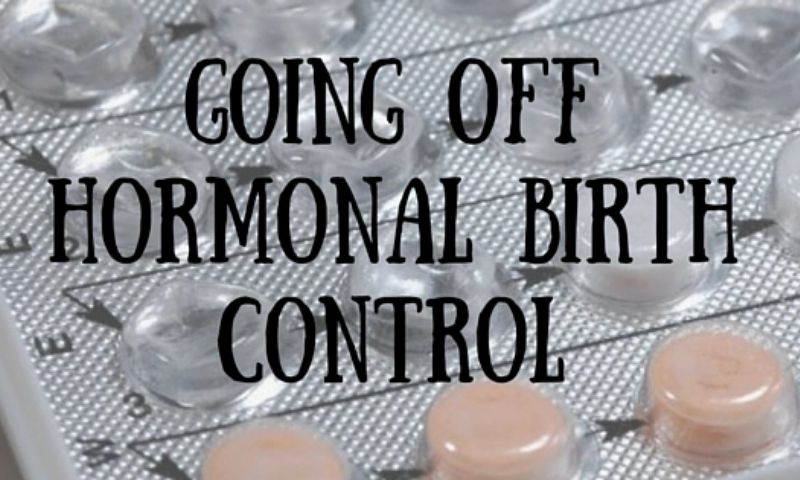When you discover the Fertility Awareness Method it can feel like a revelation – you want to tell everyone about how you’re only fertile a few days per cycle and how ovulation and menstruation are connected and how your hormones work! Once you realize what you weren’t told in sex ed class, you want to tell everyone else the news too. Because it’s shocking and baffling that you weren’t told all about your cycle and wondered ‘when do girls ovulate’? No one bothered to bring it up, and you just know your family, friends, work colleagues and Twitter feed are gonna want to know this too, and they’re gonna be just as angry-happy as you (angry they weren’t told, happy they now know)!
But, some people don’t react like you expect to this information, to hearing all about the Fertility Awareness Method. In fact some people seem to just want to rain on your parade. Others get angry, but in the wrong way, because they think what you’re telling them is nonsense or nuts. Some people get super defensive, clam up, and want to change the topic pretty quickly – although not before making some dismissive remarks. It can be hard to handle and make you feel isolated.
So, what are the most common reactions you get when you tell people you use the Fertility Awareness Method (and how might you respond)?
Reaction: I know a joke about that – what do you call people who use the Rhythm Method? Parents! Ha.
Response: First of all, it’s not the Rhythm Method, which is just about counting days from your period and making a whole lot of assumptions about your body and cycle. Secondly, it’s actually very effective when used properly whether you’re manually charting or if you’re using technological support devices like a fertility monitor. It’s as effective as the Pill, even. If someone were to become a parent using FAM it would be because they planned it that way, not because the Fertility Awareness Method itself does not work. It can be used to plan a pregnancy, if you choose, but the inverse of that is that in can be used to avoid pregnancy too.
Reaction: What’s wrong with the birth control pill? I’ve been using it for years.
Response: Personally I experienced a lot of side effects from the Pill. It made me anxious/depressed/tired/gain weight/lose too much weight/feel detached/hate sex/have a blood clot/get sick all the time (delete as appropriate). I wasn’t comfortable with continuing to put synthetic hormones in my body to block my own cycle. It might be the right choice for you, but you should do your research first because it’s possible your IBS/UTI/chronic fatigue/depression/anxiety/poor immunity/acne/allergy (delete as appropriate) is a side effect of the Pill you’re currently taking. I feel way better now I’m not taking it anymore.
Reaction: So, I’m guessing you don’t mind if you get pregnant and you’re just gonna see what happens?
Response: (Assuming you don’t want to get pregnant using the Fertility Awareness Method) Actually I really don’t want to get pregnant. It’s not the right time in my life for that to happen whatsoever. However I understand now that I can not get pregnant and not have to put up with side effects from my birth control method. I can do both! I have chosen an effective hormone-free method of preventing pregnancy. Although preventing unwanted pregnancy is very important to me, my reproductive and overall physical and mental health is also important to me. I also don’t think it ought to be my responsibility alone to stop myself getting pregnant. It’s my partner’s responsibility too.
Reaction: Ewwww. TMI.
Response: I’m sorry you feel that way. I kind of think we ought to be more open about what’s going on with our bodies.
In fact, it was other women’s stories that got me to choose to come off the Pill and helped me find the Fertility Awareness Method. I think if we’re going to break the menstrual taboo we have to talk more about our cycles, ovulation, menstruation, the lot. It’s important. Not only because so many women have health problems that go untreated because we won’t talk about this, it’s also that it’s not shameful or wrong. Men get to talk about their bodies all the time! I also reckon you, like me, have questions about stuff that you wish you could ask someone, and I want you to know you can ask me.
Reaction: I have really bad cramps/irregular periods/heavy bleeding/horrible PMS (delete as appropriate) so I just can’t come off the Pill. I hate my birth control, but I hate my cycle more.
Response: I’m so sorry you used to have to deal with that and that you have side effects now. The thing is, though, the Pill is not actually treating your period and cycle issues. It’s just putting a band aid over them. It’s not getting down to the root cause of why that’s happening. That means when you do come off the Pill, the problems could come back and maybe even be worse because of the impact of the synthetic hormones. You could really benefit from coming off, seeing how your cycle is, and then seeking treatment that fixes the problem completely. That way you’ll also know you’re set up if you want to have children in the future. I had some issues with my period too, but I’m getting them sorted with changes to my diet and supplements.
Reaction: Oh yeah. I know about this. I use my free period tracker app to do the same thing!
Response: It’s great that you have started getting interested in your cycle! But most free period tracker apps are so not reliable or accurate. Many of them are like a digitized version of the Rhythm Method, where they assume you have a 28 day-ish cycle and that you will ovulate on the 14th day-ish, like women are robots or something. This means they can make you freak about a “late” period that isn’t late at all and wrongly suggest you are fertile at a particular time or not fertile at a particular time. I find that scary and worrying. Personally, I have learned all about the signs you must track to practice the Fertility Awareness Method, which includes tracking my basal body temperature every day. I use Daysy to do this, which is a certified medical device that learns your unique fertility cycle.
For advice on how to talk to your partner about the Fertility Awareness Method go here.
Holly Grigg-Spall is a fertility awareness and body literacy advocate and educator, a Daysy enthusiast, and excited to help more women come off the birth control pill and find a natural, effective alternative. holly.grigg-spall@valley-electronics.com














